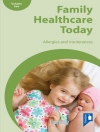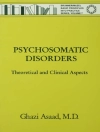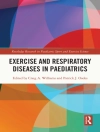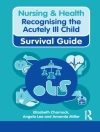This book brings together findings from research and clinical practice, with comprehensive coverage of the important aspects of mental health in ageing persons with intellectual and developmental disabilities. It is crucial for professionals involved in the care of persons with all intellectual and developmental disabilities to have a broad understanding of the essential range of issues, and therefore this book provides a truly multi-disciplinary perspective, complete with many figures and illustrations to underline the key points.
Undoubtedly, research and clinical practice are much more advanced in the general ageing population than in persons with intellectual and developmental disabilities, and so professionals and academics must be made fully aware of commonalities and idiosyncrasies of older people with intellectual and developmental disabilities. This book presents the ongoing developments concerningmental health and aging, which will become relevant to the intellectually disabled population. Through experience, this book also acknowledges that the impact on the persons themselves and on their carers always needs to be taken into account, with treatment programs established with a multi-faceted team approach in mind.
Avoiding the jargon of many titles in this area while maintaining the hands-on approach of clinical practice, this book meshes the practical and scientific worlds, with all chapters written by leading experts in the field.
Beyond the US, the IASSIDD support expands the book message worldwide.
Содержание
1. Introduction Overview of Aging, Emotional Health, and Behavior.- 2. Prevalence of Mental, Behavioral, and Neurobehavioral Disorders Among Older People with Intellectual Disabilities.- 3. Psychopathology and Older Age.- 4. Assessment of Behavioral and Psychiatric Disorders.- 5. Depression in Adults and Aging Individuals with Intellectual Disabilities.- 6. Behavioral and Psychiatric Overlays from Physical and Medical Conditions.- 7. Emotional Health and Aging in Adults with Down Syndrome.- SECTION II: TREATMENTS AND INTERVENTIONS. -10. Psychotherapy and Other Psychological Interventions. -11. Aging-Related Behavioral Interventions. -12. Psychotropic Medications. -12. Legal, Ethical and Due Process Issues. -13. Dynamics o f Bereavement and Grief Reactions. -14. Psychosocial Concerns Among Ageing Family Carers. -SECTION III: SERVICE SYSTEM ISSUES. -14. Community Mental Health and Support Services: Planning Principles and Models. -15. Prevention Strategies and Community Education. -16. Nursing roles. -17. Future Directions and Challenges.
Possible New Chapters in 2nd Edition
1.Self-advocacy and Carers perspectives
2. Aging in specific syndromes, e.g down syndrome, Prader-Willi, Fragile X.
3. Dementia- specific chapter
4. Role of genetics in aging in persons with ID
Об авторе
Vee Prasher is a NHS Consultant in Intellectual Disabilities and Visiting Professor of Neuropsychiatry. He qualified in 1985 from the University of Birmingham UK as a Medical Doctor. He initially did neurosurgery training, later general psychiatry, and finally specialised in the field of intellectual and developmental disabilities. He has been actively involved in research in intellectual and developmental disabilities, having published over 150 articles relating to people with intellectual and developmental disabilities. He has completed 3 post doctorate degrees in this field, MMed Sc, MD, and Ph D. As an editor or author he has published 15 textbooks. He has a recognised international reputation and has been involved in a number of international studies and reports highlighting health issues for ageing persons with intellectual and developmental disabilities.Philip W. Davidson is Professor Emeritus of Pediatrics, Environmental Medicine and Psychiatry at the University of Rochester School of Medicine and Dentistry. He is a Pediatric Psychologist. Dr. Davidson received a B.A. in Psychology from Bucknell University (1963), an M.S. in Psychology from Villanova University (1967) and a Ph.D. in Experimental Psychology from the George Washington University (1970). Dr. Davidson completed a post-doctoral fellowship in Clinical Child Psychology at the University of North Carolina at Chapel Hill (1974). From 1975 until 2007, Dr. Davidson directed the Department of Pediatrics’ Division of Developmental and Behavioral Pediatrics and the Strong Center for Developmental Disabilities, which provides interdisciplinary clinical services, education and research addressing the needs of people with intellectual and developmental disabilities and their families. He served as president of the International Association for the Scientific Study of Intellectual and Developmental Disabilities (2016-2019) and Division 33 of the American Psychological Association (2001-2002). He is a fellow of the American Psychological Association, the International Association for the Scientific Study of Intellectual and Developmental Disabilities and the American Association for Intellectual and Developmental Disabilities. He is the 2020 recipient of the APA’s Edgar A. Doll award. Dr. Davidson has over 240 peer-reviewed publications, books, and book chapters in the field of intellectual and developmental disabilities. His research focuses on the neurotoxicology of mercury, and on health and mental health of older persons with intellectual and developmental disabilities.
Flavia H. Santos, Ph D, is Assistant Professor in Psychology at the University College Dublin in Ireland and Deputy Director of the UCD MSc in Rehabilitation and Disability Studies at the UCD Centre for Disability Studies. Dr Santos was awarded the prestigious UCD Ad Astra Fellow in Psychology 2019-2024. She is a researcher on secondment under the Marie Skłodowska-Curie Action Research and Innovation Staff Exchange (RISE) programme for the Care HD project, focused on Huntington’s Disease. Dr Santos is a member of the ACRM Neurodegenerative Diseases Networking Group and the ACRM Geriatric Rehabilitation Networking Group. She also serves as Executive Member of the International Association for the Scientific Study of Intellectual and Developmental Disabilities (IASSIDD) Comparative Policy and Practice ‘Special Interest Research Group’












